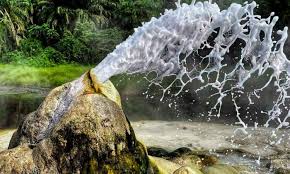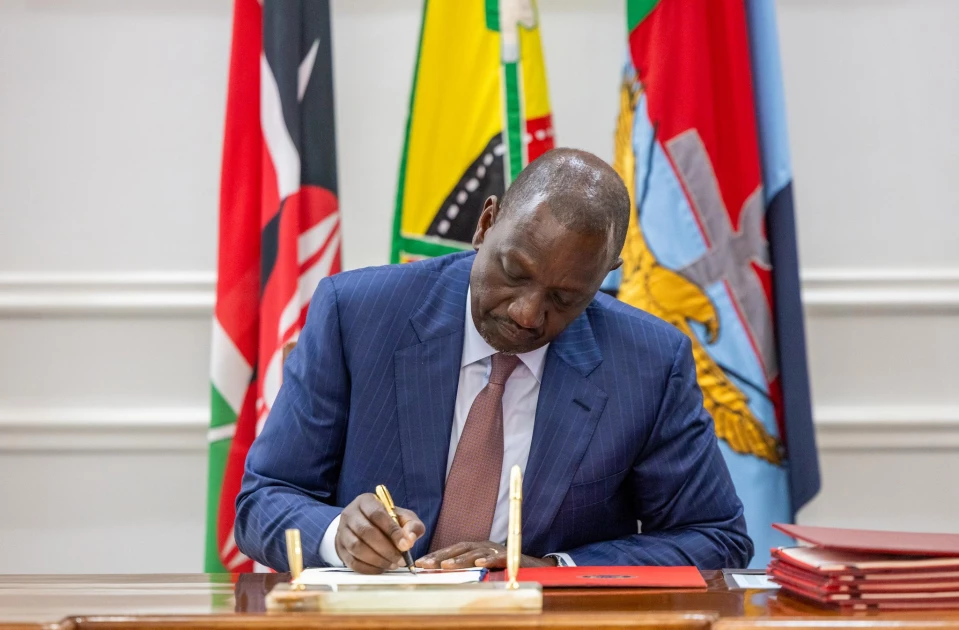Cameroon’s main opposition figure Issa Tchiroma Bakary has declared victory in the country’s October 12 presidential election, calling on President Paul Biya to concede defeat and “respect the will of the people.”
Speaking late Monday in a live address from his hometown of Garoua, Tchiroma said,
“Our victory is clear. It must be respected. The people have chosen — and this choice must be honoured.”
Tchiroma, a former government spokesperson and minister of employment, broke ranks with Biya’s ruling party earlier this year and ran under the Cameroon National Salvation Front (FSNC).
His campaign gained unexpected momentum, drawing large crowds and support from a coalition of opposition parties, youth movements, and civil society groups frustrated by Biya’s decades-long rule.
President Biya’s Cameroon People’s Democratic Movement (CPDM) swiftly dismissed Tchiroma’s declaration as “a grotesque hoax,” insisting that only the Constitutional Council has the authority to announce official results.
“It is an inadmissible act in a state governed by the rule of law,” said CPDM spokesperson Jacques Fame Ndongo in a statement on Tuesday.
The Minister of Territorial Administration, Paul Atanga Nji, also warned that any attempt to publish parallel results would be treated as “high treason,” urging calm and promising that security forces would maintain order during the electoral period.
The declaration has plunged Cameroon into uncertainty. President Biya, 92, is the world’s oldest serving head of state and has ruled since 1982, winning seven consecutive elections — many of them marred by allegations of fraud, voter suppression, and violence.
Analysts say this election marks one of the most serious challenges to Biya’s authority in decades.
“This is a pivotal moment. Even if Tchiroma’s claim is premature, it reflects growing frustration over Biya’s long rule and a generational shift among voters,” said Dr. Joseph Mbembe, a political analyst at the University of Yaoundé II.
Public discontent has deepened over economic stagnation, youth unemployment, and ongoing insecurity in the country’s Anglophone regions, where separatist groups have fought for independence since 2017.
Tchiroma said his campaign had compiled vote tallies from polling station results publicly posted across the country, promising to release a region-by-region breakdown in the coming days.
“This victory is not that of one man or one party — it is the victory of a people,” he said.
“We have placed the regime before its responsibilities: either it shows greatness by accepting the truth of the ballot box, or it plunges our nation into turmoil.”
He also called on security forces, administrators, and judges to remain loyal to the “Republic, not the regime,” emphasizing that his campaign would defend the integrity of the electoral process through “peaceful and lawful means.”
Cameroon’s electoral law requires that results be posted publicly at polling stations, but only the Constitutional Council can declare final results.
The Council has until October 26 to validate and announce the outcome.
More than 8 million registered voters participated in the election, which operates under a single-round system — meaning the candidate with the most votes wins outright.
There have been sporadic celebrations and confrontations in several towns across northern and western Cameroon, where Tchiroma enjoys significant support. Security forces have reportedly been placed on high alert in Yaoundé and Douala amid fears of unrest.
International observers, including delegations from the African Union and La Francophonie, have not yet released their preliminary findings but urged all parties to refrain from violence and respect constitutional processes.
The United Nations also called for “transparency, restraint, and respect for democratic norms” in the coming days.
A veteran of Cameroonian politics, Tchiroma, now in his late seventies, has been both an ally and a critic of President Biya. A former political prisoner, he once served as Biya’s minister and spokesperson before founding his own party, the FSNC, in 2007.
Known for his fiery rhetoric and populist appeal, Tchiroma has long positioned himself as a bridge between the country’s northern communities and the central political elite in Yaoundé.
As the nation awaits the official announcement, tension is palpable. Many Cameroonians see this election as a test of whether the country can transition democratically after more than four decades of one-man rule.
“Cameroon stands at a crossroads,” said political commentator Marie-Claire Ngassa. “How the government handles this moment could define the country’s democratic future.”



